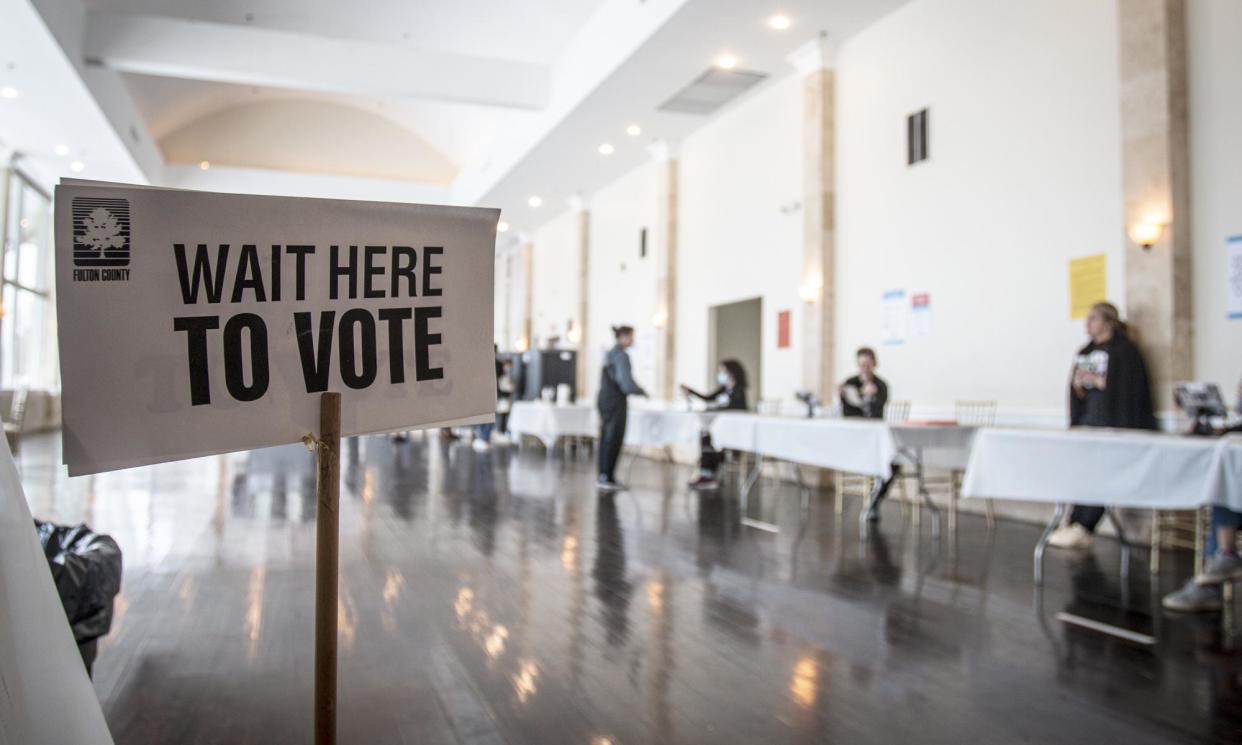Georgia Republican official fined $5,000 for voting illegally nine times

An official in the Georgia Republican party who has said the 2020 election was stolen was ordered to pay a $5,000 fine and will receive a public reprimand for voting illegally nine times, the Atlanta Journal-Constitution reported on Thursday.
Brian Pritchard, the first vice-president of the state Republican party, illegally voted in nine elections from 2008 to 2010 while he was still on probation for a 1996 forgery felony conviction in Pennsylvania. Georgia and 14 other states require people to have completed their sentence, including probation, before they can vote. About 163,475 people could not vote in Georgia in 2022 because they were on felony probation, according to an estimate by the Sentencing Project, a criminal justice non-profit.
Pritchard, told Lisa Boggs, the administrative law judge overseeing the case, he believed his criminal sentence had expired and was not aware the criminal court in Pennsylvania had extended his probation until 2011 for allegedly failing to repay $38,000 in restitution.
Boggs wrote in her ruling she did not find that credible, noting that he had appeared in court several times while his probation was extended.
The state board of elections began investigating the matter in 2015 and referred it to a local district attorney’s office and the state attorney general in 2021. The state attorney general referred it to the administrative law judge the following year.
The Georgia Republican party did not respond to a request for comment.
Related: The states where it’s impossible to vote if you have a felony conviction
The case underscores how confusing it can be for people with felony convictions to figure out if they can vote and comes as voters elsewhere in the country have faced harsher punishments for similar errors about their voting eligibility. While prosecutions and criminal sentences are difficult to compare across different jurisdictions, many say the disparate treatment is shaped by race.
In Memphis, a Black woman was sentenced to six years in prison after probation officials told her she was eligible to vote and she tried to register (a judge eventually threw out the sentence). In Florida, a voter fraud unit created by Governor Ron DeSantis has aggressively pursued charges against people with felony convictions who received voter registration cards in the mail. And in Texas, a Black woman was sentenced to five years in prison for trying to cast a provisional ballot while ineligible, even though the ballot was rejected (an appeal is pending).


